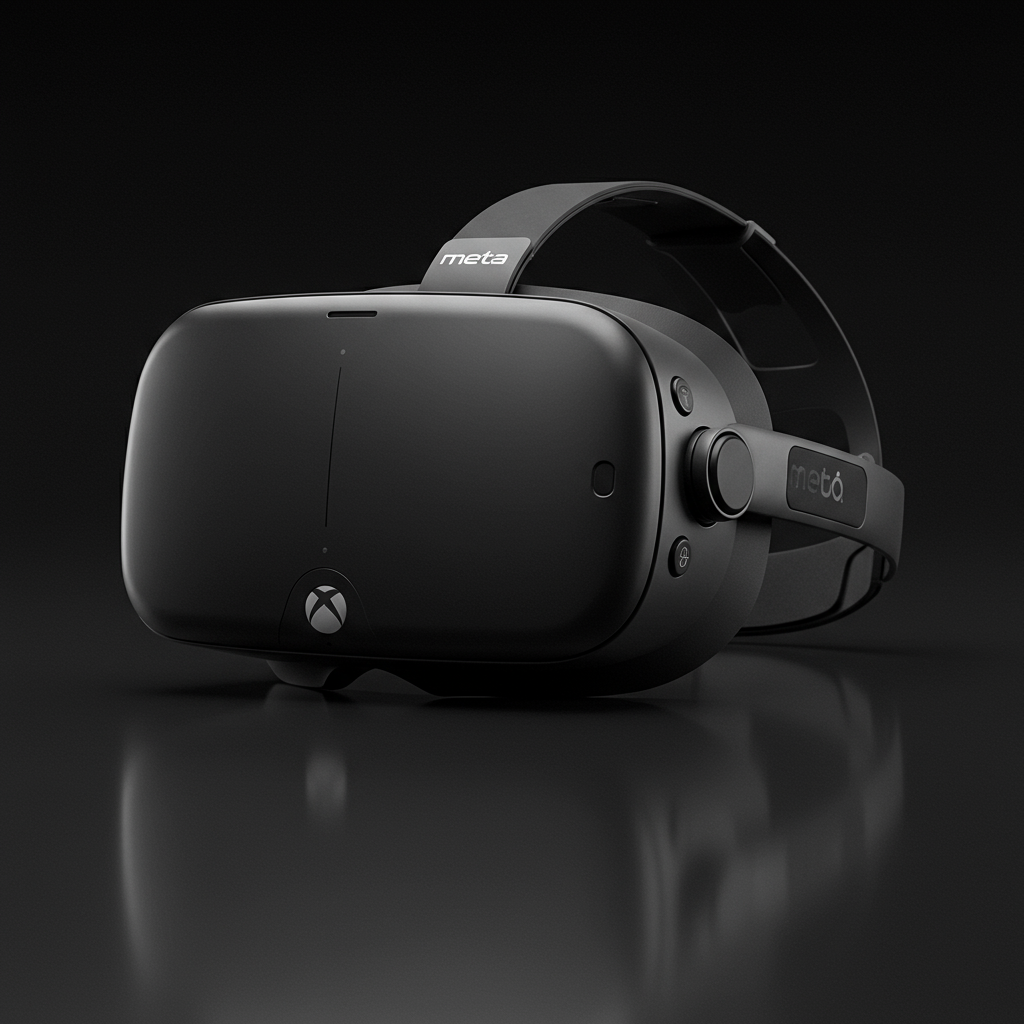Microsoft’s Xbox division and Meta have officially unveiled the Meta Quest 3S Xbox Edition, a limited edition virtual reality headset bundle. This release deepens an ongoing collaboration between the two tech giants, signaling Xbox’s evolving strategy in the burgeoning VR space.
The partnership isn’t new; it follows the integration of Xbox cloud gaming onto Meta headsets starting in 2022, which expanded further with the arrival of Xbox Game Pass on Meta Quest 3 in 2023. The new limited edition headset takes this relationship a step further with themed hardware.
What’s Inside the Box?
The Meta Quest 3S Xbox Edition sports a distinctive black and green Xbox-inspired design. This theme extends to the included Meta Touch Plus controllers. Adding extra value for gamers, the bundle also features a limited-edition Xbox Wireless Controller. Beyond the hardware, purchasers receive three months of Meta Horizon+ and three months of Xbox Game Pass Ultimate.
The headset is available now, priced at £379.99 in the UK (via Meta direct, Argos, and EE) and $399.99 in the US (exclusively at Best Buy).
Gaming on the Meta Quest Xbox Edition
Crucially, the primary focus of the Xbox integration on this headset is cloud gaming. Users can access the vast library of Xbox Game Pass titles streamed directly to the Meta Quest headset. It’s important to note that this does not enable native, full VR versions of standard Xbox games. Instead, games are played on a virtual screen within the VR environment. Users can choose from four different display options, including one simulating a large, cinema-sized screen. A significant benefit of this cloud-based approach is the support for cross-play and cross-progression, allowing players to seamlessly switch between playing on the VR headset, an Xbox console, or a PC while continuing their progress.
Xbox’s Cautious Step into VR
This move sees Microsoft “dipping its toes” into the virtual reality market without developing its own dedicated VR hardware system. This approach stands in contrast to past statements from Microsoft leadership. In 2019, Microsoft Gaming CEO Phil Spencer expressed skepticism regarding VR, citing its isolating nature compared to the communal gaming experience he valued, and noted a lack of widespread consumer demand at the time. The release of this branded Meta Quest headset marks a clear shift or, at least, a different angle on engaging with VR than previously outlined.
Interestingly, Xbox has explored VR concepts before, including a “Kinect Glasses” prototype for the Xbox One over a decade ago and later advertising the Xbox One X as “VR-ready,” though these never resulted in a consumer product. This history underscores Microsoft’s cautious approach to the technology, preferring this time to partner rather than build from the ground up.
This strategy mirrors Xbox’s recent announcement of an Xbox-branded handheld, the ROG Ally developed by ASUS, where Microsoft provides software and branding on partner hardware. It also presents a different market approach compared to Sony’s PSVR2, which has reportedly faced challenges with ongoing support since its 2023 launch.
Ultimately, this limited edition Meta Quest headset allows Microsoft to establish a presence in the growing VR space by leveraging Meta’s established hardware platform. For Meta, the collaboration offers the potential to tap into the strong Xbox brand and attract mainstream gamers to the Quest ecosystem. While it’s not the native console VR experience many fans have hoped for, it represents a tangible step for Xbox into the virtual realm through the avenue of cloud gaming.


